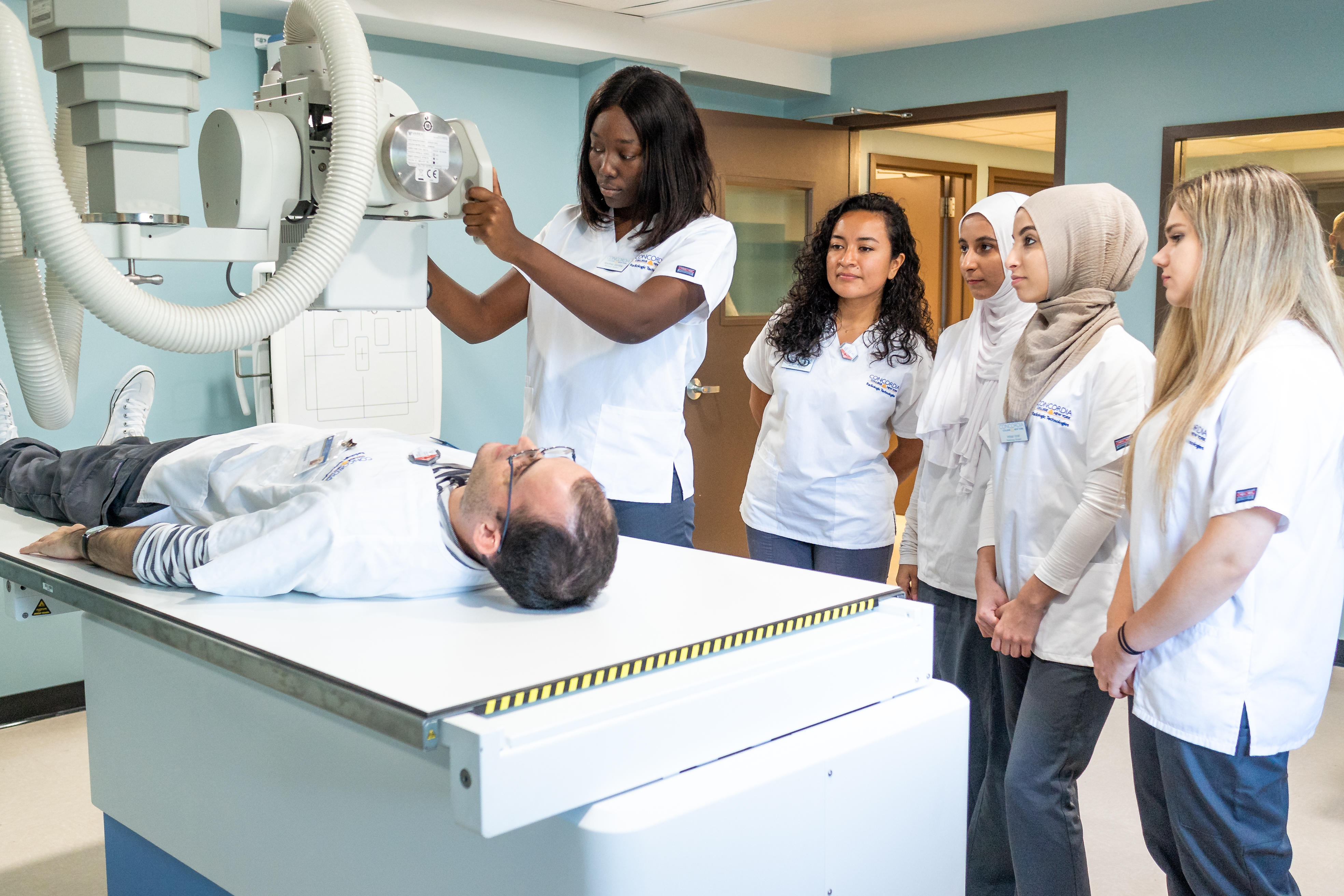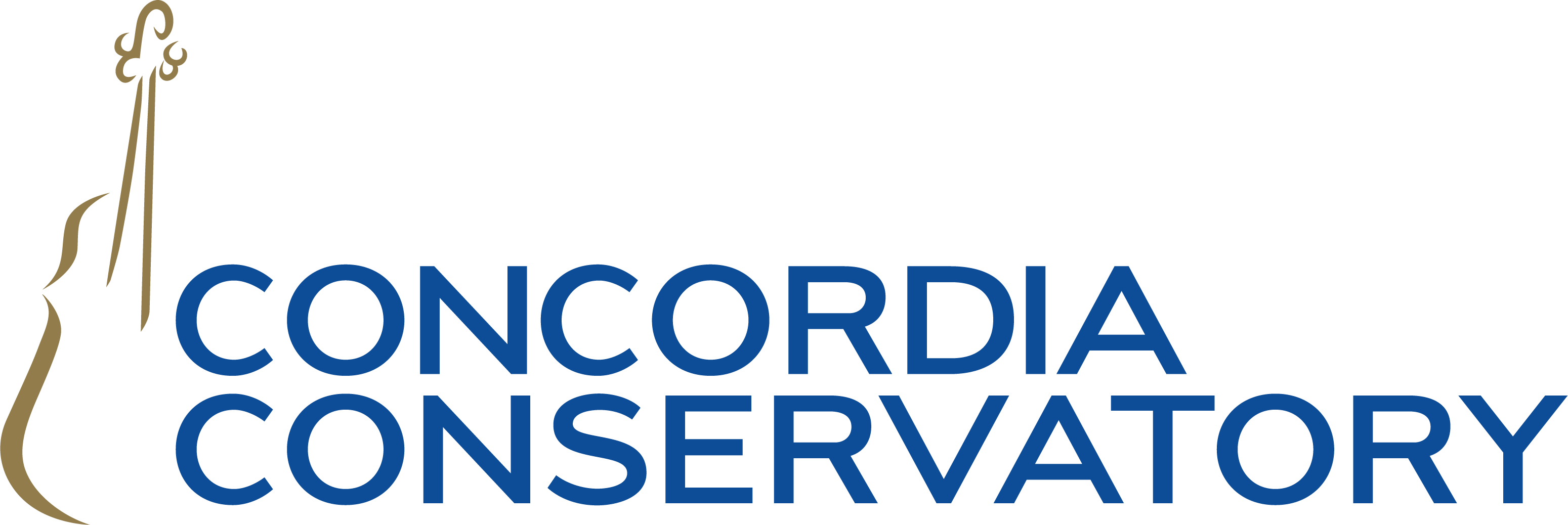
Radiologic Technologies
A rare bachelor’s program in a high-demand field
Radiologic Technologies is the art and science of using radiation to produce diagnostic images of the tissues, bones, organs, and vessels of the body.
Concordia offers one of the only Bachelor of Science in Radiologic Technologies degrees in the region. A four-year, accredited degree with clinical experience is highly valued in this rapidly growing industry. The need for next-generation managers, professors, sales experts, publishers, professional organization leaders and industry advocates is acute. With a BS, radiologic technologies professionals will be prepared to fill the gap as today's industry leaders approach retirement.
This program prepares students to sit for the American Registry of Radiologic Technologists (ARRT) national certification examination upon graduation.
Clinical Placement Sites:
NYU Langone Medical Center • Helen Hayes Hospital • St. Joseph’s Medical Center • CityMD Urgent Care • Montefiore New Rochelle Hospital • University Diagnostic Medical Imaging
Accreditation
Concordia College is accredited by The Mid-Atlantic Region Commission on Higher Education, doing business as the Middle States Commission on Higher Education (MSCHE). The Commission on Higher Education is recognized by the U.S. Secretary of Education to conduct accreditation and pre-accreditation (candidacy status) activities for institutions of higher education. 3624 Market Street, Suite 2 West, Philadelphia PA 19104, 215-662-5606
Radiologic Technologies is accredited by Joint Review Committee on Education in Radiologic Technology (JRCERT). 20 North Wacker Drive #2850, Chicago, IL 60606-3182,(312) 704-5300
Program Mission and Learning Outcomes
Our mission is to offer a quality educational program with the purpose of training competent Radiographers who will model ethical behavior, practice radiation safety, and provide quality patient care. We are committed to instruction in an atmosphere of professionalism, support and shared social responsibility.
Program Student Learning Outcomes and Goals
PSLO #1 Demonstrate critical thinking competence in radiologic technology
- Students will be able to apply learned positioning skills.
- Students will demonstrate the selection of correct technical factors for various exams.
- Students will employ appropriate radiation protection in the clinical setting.
PSLO #2 Devise problem solving skills for use in the field of Radiologic technologies
- Students will demonstrate the ability to adapt skills for trauma (non-routine) exams.
- Students will demonstrate the ability to adapt techniques for variations in patient body habitus
- Students will demonstrate an ability to critique radiographs for diagnostic quality and to recognize potential area(s) of improvement.
PSLO #3 Develop professional and ethical behavior as a Radiologic technologist in service to the community
- Students will express professional behavior towards patients, fellow students, and hospital staff working as a member of the health care team.
- Students will apply didactic knowledge of professional law and ethics to support ethical behavior in the clinical setting.
- Students will synthesize best practices to remain culturally competent in a diverse environment.
- Students will outline the risks and benefits of both routine and advanced imaging procedures.
PSLO #4 Employ effective communication in the surrounding community and in the health care field
- Students will employ effective oral communication skills in the clinical setting and in class.
- Students will demonstrate effective written communication skills in the clinical setting.
- Students will demonstrate the ability to collaborate with all members of the healthcare team.
PSLO #5 Value the importance of continued personal and professional development
- Students will pass the national certification examination on the first attempt.
- Of those pursing employment, students will be gainfully employed within 6 months post-graduation.
- Students will complete the program.
- Graduates will be satisfied with their education.
- Employers will be satisfied with the performance of newly hired technologists.
- Students will justify the need for professional development through Continuing Qualifications Requirements
Program Effectiveness Data
For PED Definitions and all JRCERT-accredited programs’ PED data please visit: JRCERT Program Effectiveness Data.
Frequently Asked Questions
Admission Requirements
Enrollment into Concordia’s BS Rad Tech program happens in the junior year, making the program ideal for transfer students. For both transfer students and those who have completed their first two years at Concordia as Rad Tech Candidates, requirements for enrollment include:
- Anatomy and Physiology I, II, and General Psychology passed with 3.0 or above
- 50 volunteer hours in a health care facility
- Cumulative GPA of 3.0 or above
- Interview with program representative
